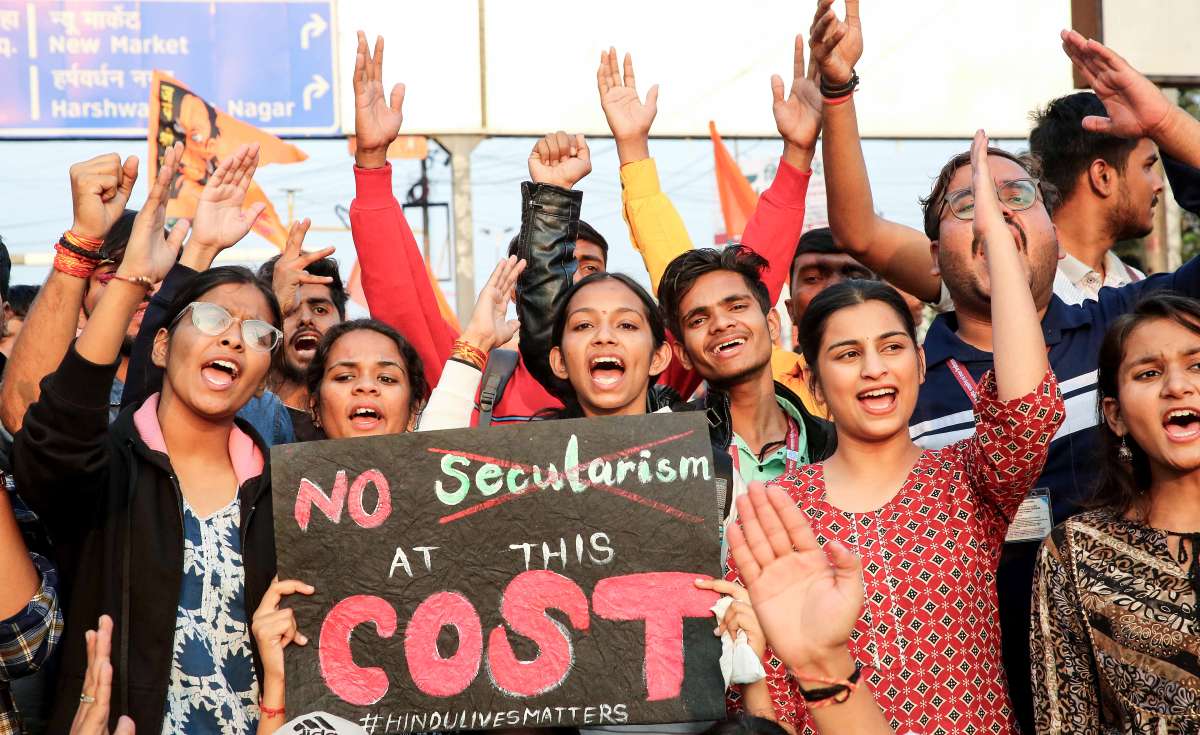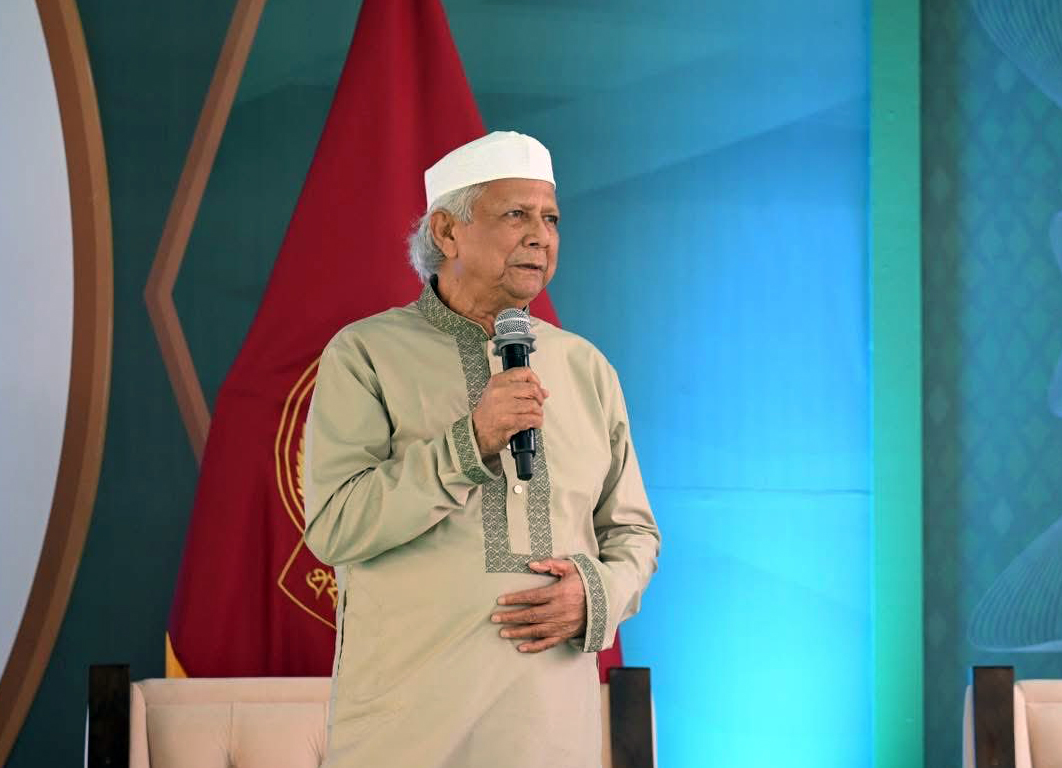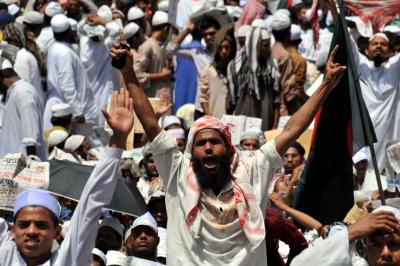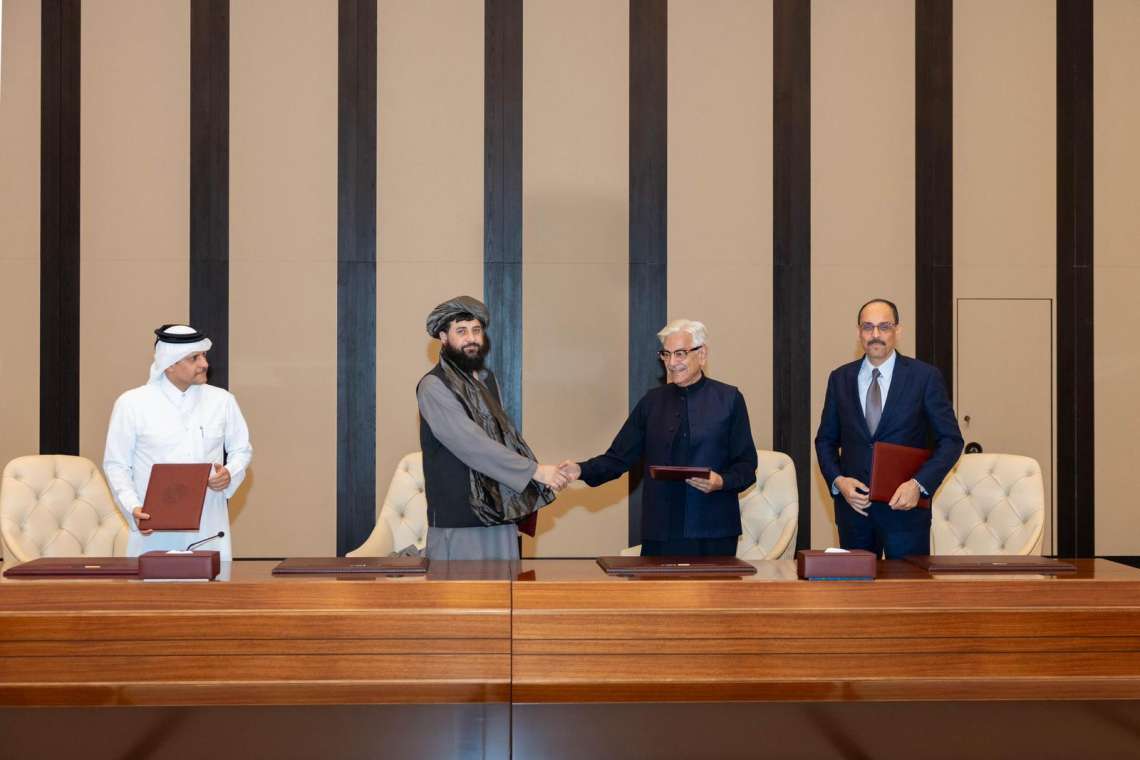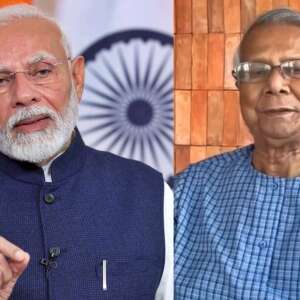Minorities are insecure in Bangladesh, be they ethnic or religious. The Bengali-speaking Hindu minorities have been facing attacks regularly since the fall of the Sheikh Hasina government … writes Rahul Sharma
The new rulers of Bangladesh have no mercy for the minority communities in the country, be they religious minorities or ethnic minorities. Recent attacks on the minorities are increasing the insecurity among them. Fast turning into a puppet in the hands of the fundamentalist forces, the interim government in Bangladesh has utterly failed to control the situation.
The Bengali-speaking Hindu minorities have been facing attacks regularly since the fall of the Sheikh Hasina government. Outrages committed on people of the Marma tribe at Khagrachari Hill District in the Chittagong Hill Tracts (CHT) underscore that fundamentalists in Bangladesh are no respecters of tribal people either.
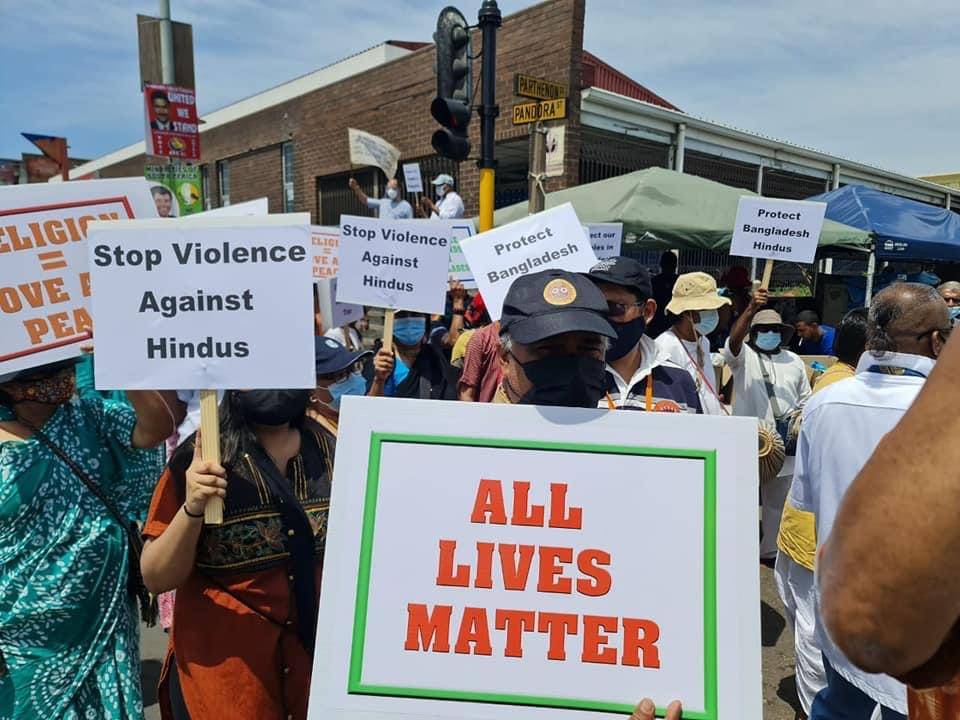
This is not surprising. As a commentator in Prothom Alo, a newspaper published from Dhaka, has pointed out, fundamentalist politics interprets any faith, culture or nationality that the majority people do not follow as a threat. With the rise in fundamentalism, intimidation, harassment and mob violence against minorities are increasing in Bangladesh. Ethnic minorities who are usually geographically marginalized have also faced the accusation of being separatists.
At Guimara village in Khagrachari, at least three tribal people were shot dead and dozens were injured in a flare-up with settlers of the majority community on September 28. The attack by the majority community people and the military was designed to suppress an agitation of the tribal people in protest against the gang rape of a Marma girl of the eighth grade. The assailants were three youths of the Bengali community, of whom only one was arrested; leading to the agitation demanding the arrest of the other two.
The agitators had set up a road blockade under the banner of ‘Jumma Chhatra Janata,’ burning tyres and felling trees across the roads, disrupting traffic on the Chittagong – Khagrachari and a few other roads. In an evidently organized attack, unidentified people opened fire on the assembly. Ramesu Bazar, a market in the Guimara upa-zila, was set on fire. Eyewitness accounts said immediately after the firing, as the assembled people started fleeing, a group of about 20 people, many of them wearing masks, looted the Ramesu Bazar shops and the near-by houses before setting them ablaze. Several shops and some adjoining residential houses went up in flames. Most of shop owners in the market were from the ethnic minority community.
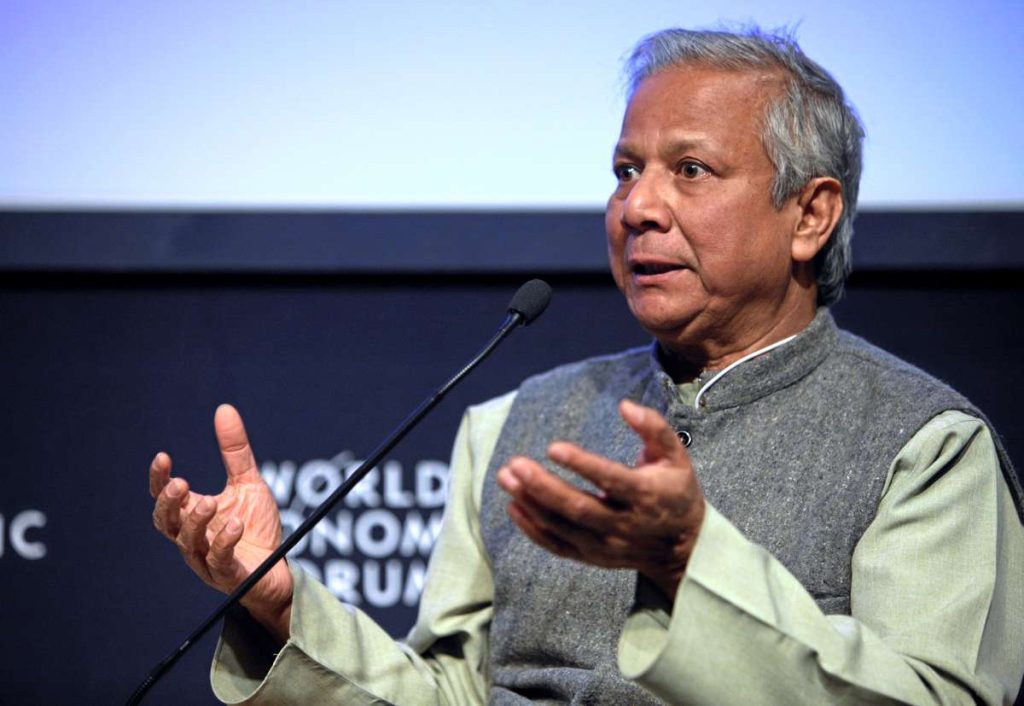
There have been several other incidents of violence on ethnic minorities during the rule of the interim government. As a sequel to the beating to death of a Bengali youth on allegation of motor cycle theft at Khagrachari on September 18, a person from an ethnic minority community was lynched the next day. The same night, two hill youths were shot dead by the police at the district headquarters. On September 20, Anil Kumar Chakma was beaten to death at Rangamati town in broad daylight.
The Kapaeeng Foundation, a human rights organization advocating for the rights of indigenous people in Bangladesh, has estimated that there were 24 incidents of violence against women from the ethnic minority communities in Bangladesh between January and July 2025; of them 21 in the CHT and three in the plains. Six women were raped, two were killed. There were 34 custodial deaths in the hills and the plains, arbitrary detention, assault and forced conversion.
With the settlement of Rohingya refugees from Myanmar in Cox’s Bazar, adjoining the CHT, the persecution of the tribal people in Bangladesh has increased. The Kutupalong refugee camp in Cox’s Bazar now accommodates nearly one million Rohingya refugees. Though settlements of outsiders are not allowed in the CHT under Bangladeshi laws to ensure protection of tribal land, Rohingya refugee settlements are reported to be spilling over in the CHT, leading to conflicts.
The Marma tribe people have their origin in Myanmar, where they are known as Arakans; with the Rakhine state as their homeland. By faith, they are Theraveda Buddhists. In Myanmar, the Arakans and the Rohingyas are in inimical relation. The rebel Arakan Army is now in control of the Rakhine State and they are instrumental in the persecution of Rohingyas in Rakhine.
Meanwhile, the attacks on Hindu minorities have been continuing unabated since the fall of the Sheikh Hasina government; causing concern even in British Parliament, On December 2, 2024, Labour MP Barry Gardiner mentioned in the Parliament of UK: “Since the fall of the previous government in August, Bangladesh has seen more than 2,000 incidents of violence, most of which have been targeted against the minority Hindu community who make up 10 percent of the population of Bangladesh.”
Though Bangladesh became an Islamic state in 1988, the MP reminded that under articles 28 and 39 of the constitution minority religions were supposed to enjoy protection. “However, these appear not to be enforced. There are reports of the police and the army standing by, as more than 20 places of minority Hindu and Sufi worship were vandalized and their worshippers attacked,” he said.
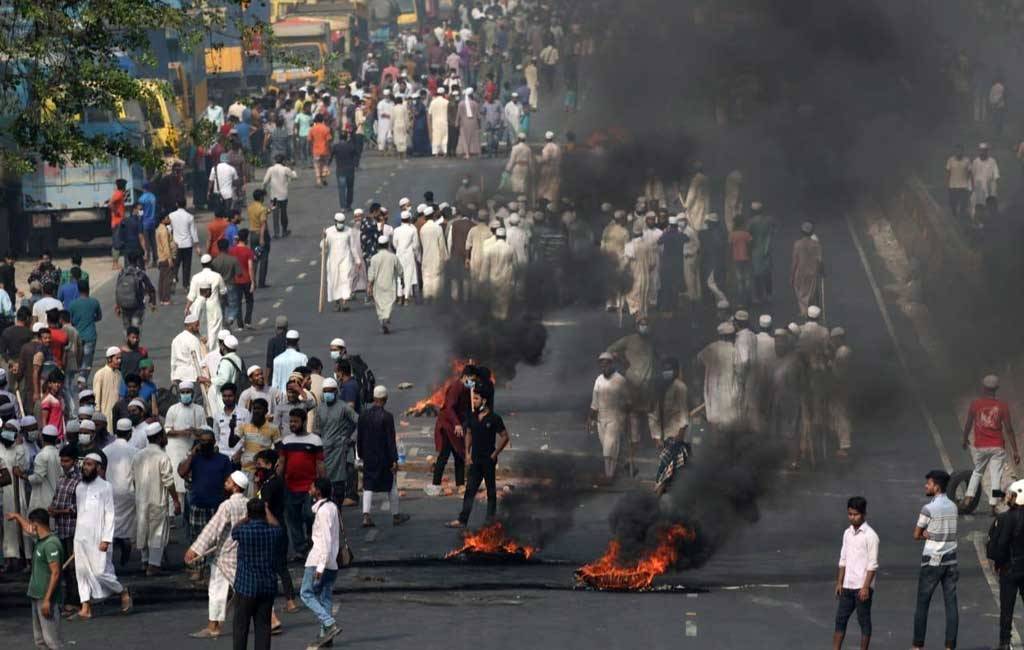
In December 2024, the Mohammed Yunus government admitted 88 incidents of communal violence in Bangladesh targeting the minorities, primarily Hindus, since the fall of the Sheikh Hasina government.
Following the April 22 Pahalgam terror attack, anti-Indian sentiments have further intensified in Bangladesh. Since the defeat of Pakistan in Operation Sindoor, Islamic fundamentalists in Bangladesh are trying to whip up anti-Hindu sentiments by framing India as a threat to the existence of Islamic identity. On April 29, Major General Fazrul Rahman (retired), a close aide of Mohammed Yunus, suggested on Facebook that Bangladesh should align with Pakistan. The same month Dhaka and Islamabad held their first foreign secretary-level talks in 15 years. The improving relations with Pakistan could encourage Islamic fundamentalists to help intensify anti-Hindu sentiments in Bangladesh.
Not surprisingly, unable to control the attacks on minority communities, the interim government has tried to shift the blame on India and Sheikh Hasina for the disturbances in the Khagrachari hill region. Home Affairs Advisor Lt Gen Jahangir Alam Chowdhury (retd) has accused India as he has said – of attempting to destabilize the hills, without providing any evidence.
India has, of course, rejected the wild allegation. “The interim government is unable to maintain law and order in Bangladesh and has a habit of routinely shifting the blame elsewhere,” Indian External Affairs Ministry spokesman Randhir Jaiswal said on October 3. “It would do well to introspect and conduct serious investigations into local extremists committing violence, arson and land grabs against the minority communities in the CHT.”


